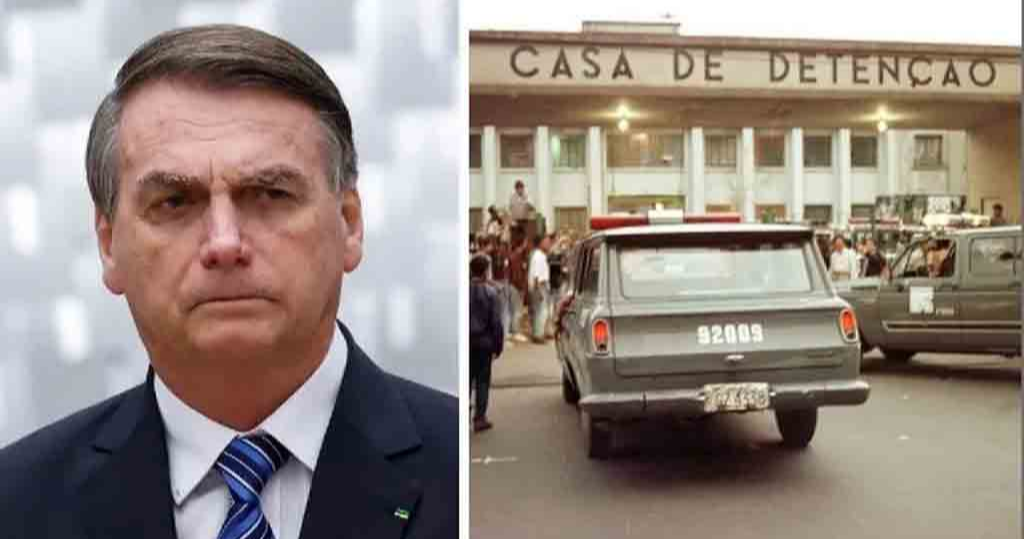
A few days before the end of his term as president of Brazil and taking advantage of the Christmas holidays, Jair Bolsonaro pardoned military and police officers, including those who participated in the condemnable events in the former penitentiary center of the city of Sao Paulo, where more than eight thousand prisoners were overcrowded in inhumane and unsanitary conditions.
By María Josefina Arce
Brazil is once again reliving the Carandiru prison massacre. A few days before the end of his term as president of Brazil and taking advantage of the Christmas holidays, Jair Bolsonaro pardoned military and police officers, including those who participated in the condemnable events in the former penitentiary center of the city of Sao Paulo, where more than eight thousand prisoners were overcrowded in inhumane and unsanitary conditions.
One hundred and eleven inmates were massacred, 85 of them executed inside their cells, without offering resistance, by police agents, who, despite evidence of excessive and unjustifiable use of force, have not been sentenced.
The judicial process dragged on for decades and it was not until 10 years ago that the police officers, who never went to jail, were sentenced.
For Brazilian society, Carandiru is a symbol of the violence exercised by law enforcement agencies, but also of impunity, an impunity that the outgoing president came to defend with the pardon granted.
Voices of protest have immediately been raised, calling the act an affront to human dignity and to the principles of international law. The Attorney General of Justice of Sao Paulo, Mario Ruiz Sarrubbo, sent a letter to the Brazilian judicial bodies to declare the pardon unconstitutional.
In his four years in office Bolsonaro has benefited police and military with the traditional Christmas pardon, a prerogative, provided for in the Brazilian Constitution, exclusive to the president.
Although it has not been without its ups and downs, the retired captain's relationship with the army and the police is close. Throughout his term in office he has relied on the law enforcement bodies and even brought several of their members to key positions in his government.
Bolsonaro is nostalgic for the military dictatorship in Brazil, despite the crimes committed during those years. According to human rights organizations, more than 20,000 cases of torture are documented, while 8,000 indigenous people and at least 435 opponents were murdered.
In fact, only three months after arriving at the Planalto Palace in 2019, he encouraged the Armed Forces to commemorate the 55th anniversary of the coup d'état that established in 1964 the military dictatorship until 1985.
The outgoing president has also defended the excessive use of force against crime and has advocated that agents who, in the exercise of their duties, kill anyone they consider a criminal should not answer to justice.
This Bolsonaro policy has led to an increase in police brutality and the death of innocent civilians during operations. Let us recall the massacre in 2021 in the favela of Jacarezinho, in Rio de Janeiro, in which 28 people lost their lives.
The ultra-right Bolsonaro concludes his mandate, marked by controversial racist, homophobic, sexist and sexist and denialist statements about COVID 19, but above all by his evident admiration for the military dictatorship and its actions in favor of the uniformed.

